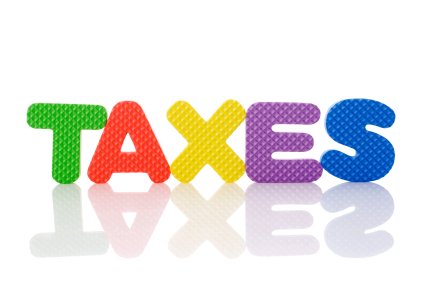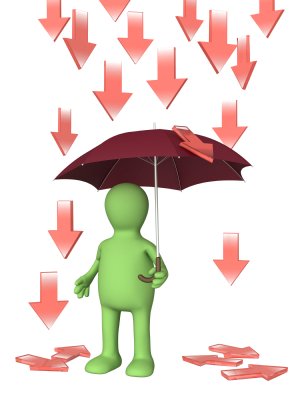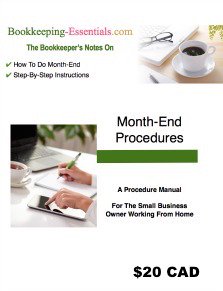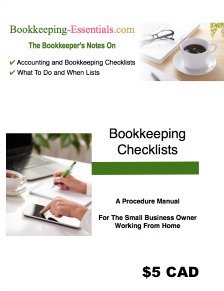An Introduction To Payroll Tax Deductions
by L. Kenway BComm CPB Retired
This is a part one of a four part series on Canadian payroll tax deductions.
The series shares The Bookkeeper's Notes on current rates, rules, revisions or changes to deductions that would be of interest to home-based business owners with employees and their bookkeepers .
Chat Continues Below Advertisement

What You'll Find In This Chat ...
Enjoy a sip of tea while you browse through my reference notes on Canadian payroll deductions.
- General Notes on Payroll Deductions
- Terminating an Employee ... and sample employment contract
- Employee Taxable Benefits Rules ... find an indispensable benefits chart
- Wage Loss Replacement Plans and Benefits ... Disability Income Insurance
- Wage Loss Replacement Benefits ... explains recent policy change on CPP contributions
- Online Automobile Benefits Calculator ... assists with standby charges
- Rules for Gifts and Awards
- Employee Taxable Benefits Rule Revisions
- Employee Taxable Benefits - Educational Amounts
- Employee Taxable Benefits - Employer Provided Cell Phones and Employee Owned Cell Phones
Other Chats in This
|
Part 1Payroll Tax Deductions |
Part 2
2024 EI & CPP Rates |
Part 3
CRA Subcontracting |
Part 4
Minimum Wages |
Table of Contents
|
Chat Continues Below Advertisement

THE BOOKKEEPER'S NOTES ON
General Payroll Tax Deductions


If you are a new business owner with payroll, take time to review How Payroll Works on the CRA website. It covers employer responsibilities and the consequences of non-compliance.
To take a free short course on payroll tax deductions in Canada, you might consider watching the CRA webcast Payroll Information for a New Small Business located in the video gallery under videos for businesses.
If you are thinking of hiring an employee for your business, Robert Half International has various 2014 Salary Guides available for free download. The guides could help you determine how much the position should pay.

If you are new to doing payroll you may be wondering, "How are payroll taxes reported in Canada?" Unlike the U.S. where there are federal AND state payroll taxes ... only the federal government imposes payroll taxes. Don't you feel lucky now?
You must register with CRA to receive your "RP" number before you can do your first payroll.
Just so there is no confusion ... payroll taxes are also referred to as source deductions ... and all Canadian payroll taxes are reported and remitted to the CRA on forms PD7A Statement of Account for Current Source Deductions or RC107 Remittance Voucher for Current Source Deductions.
You also have the option to file and pay your payroll taxes online using My Business Account or My Payment. If you are looking for a way to improve your cash flow, switching to CRA's online processing for your payroll tax deduction obligations saves you time and reduces your administrative costs.

Click here for 2014 CPP rates & EI rates.

If you are a sole proprietor, the employer portion of CPP contributions and EI premiums (often referred to as payroll taxes) paid for your employees are a payroll tax deduction. They are reported on Line 9060 or Line 8340 of Form T2125 when you prepare your annual tax return.
Right about now, you may be asking, "Does a sole proprietor contribute to CPP?" The answer is yes.
Don't confuse employee payroll taxes however with your CPP premiums you, as a sole proprietor, pay on your self employment income.
The amount of CPP you personally owe on your earnings for your pension plan will be calculated on Schedule 8 of your T1.
You are exempt from regular EI premiums but may opt into voluntary EI premiums. I chat more about the voluntary program for the self-employed in Part 2 of this series.

If you are an incorporated owner/manager, you are an employee.
You must deduct CPP premiums and income tax from your salary and report it on the CRA form PD7A. Read more about the advantages of being on the payroll.
You too are exempt from regular EI premiums and may also opt into voluntary EI premiums. As mentioned above, I chat more about the voluntary program for the self-employed in Part 2 of this series.

CPP payroll tax rates are usually released
in November each year while EI rates are normally released in September. Current CPP & EI payroll
tax rates are found in Part 2 of this series.

THE BOOKKEEPER'S NOTES ON
Employee Taxable Benefits and Allowances
Indispensable Benefits Chart


CRA's publication T4130 Employers' Guide - Taxable Benefits and Allowances has a benefits chart on the last two pages which is indispensable when working with taxable benefits.
CRA's chart shows a comprehensive list of benefits ... showing when you need to include GST/HST on the benefit/allowance and when you are required to withhold CPP & EI, along with the T4 codes.
The benefits chart is located on the CRA website at Forms and Publications>Publications listed by publication number> T> T4130. Download it to your desktop or bookmark for easy reference.
General Rules - Cash
Generally, cash allowances are NOT subject to GST/HST but non-cash benefits and cash reimbursements ARE subject to GST/HST ... unless they are exempt or zero rated.
Check the benefits
chart to be sure. You'll also be interested in the next topic to be discussed ... Gifts and Awards.
CRA Rules for Gifts and Awards
Make Fewer Payroll Errors With This Tool

Are you aware of this excellent CRA payroll tax deductions tool?
On July 22, 2010, CRA published an online series of nine questions for YOU to answer with the click of your mouse ... to help employers determine if employer provided awards and gifts are taxable benefits to employees.
Each question requires you click "yes" or "no". Depending on your selection, you are then given another question or directed to a web page with the information you need. It is very cool! (Am I allowed to say that in the twenty first century?!!)
This payroll tax deductions tool was designed for you to use it EACH time you give an award or gift to an employee.
General Rules
Cash awards and gifts are always a taxable benefit. This means it is pensionable and insurable so you must deduct CPP contributions, EI premiums and income tax.
Near cash gifts such as stocks, gift certificates or gift cards, are always a taxable benefit. This means it is pensionable so you must deduct CPP contributions and income tax. They are NOT insurable so do NOT deduct EI premiums. When a non-cash gift or award is a taxable benefit, you MUST deduct CPP contributions and income tax.
To find out to treat cash received is not a gift or reward, see the benefits chart discussion directly above this chat.
You can find the Q&A series on the CRA website under Businesses> Payroll> Benefits and allowances> Gifts, awards and social events > Rules for gifts and awards. Look midway down the page and click on "Answer a few questions".
Wage Loss Replacement Benefits
Policy Change

The Knowledge Bureau often has excellent analysis about changes to payroll tax deductions.
In the Knowledge Bureau's January 19, 2011 e-News, you will find information on CRA's policy change on Wage Loss Replacement Benefits due to the recent court case Toronto Transit Commission v. Canada.
The policy change is regards CPP contributions.
"Wage-loss benefits paid by an employer, a trustee or an insurance company are not (my emphasis) subject to CPP contributions."
The Knowledge Bureau article titled Wage Loss Replacement Benefits explains "Past year overpayments must be requested via Form PD24 within 4 years of the end of the tax year in which the overpayment occurred."
You can find the full article in the e-News archives, located at Tools> Knowledge Bureau Report>Breaking News Archives> Wage Loss Replacement Benefits (previously Back Issues> January 19, 2011).
If you want to do your own research, wage-loss
replacement plans are discussed on the CRA website under Businesses>
Payroll> Calculating deductions> Special payments.

GOOD TO KNOW
Wage Loss Replacement Plans and Benefits
Disability Income Insurance
Here is an important Canadian payroll tax deduction reminder that's easy to forget. It is beneficial to have the employee pay the disability premiums.
While web surfing for something else, I came across a good tip from the Canadian Payroll Association I knew about but had forgotten since I no longer have a disability plan ... For an employee to receive tax-free third party short term and long term disability benefits, the payroll deduction must be paid by the employee.
If the employer chooses to pay these third party disability premiums on behalf of the employee, the insurance benefits will be taxable. The same applies if the employer funds their own short and long term disability program ... the benefits paid to the employee will be subject to tax.
There is some good news though if the employer paid part of the premiums. The employee can claim a deduction on line 229 of their T1 for all premiums paid since 1968 that have not already been previously claimed.

If the corporation pays a shareholder's disability income insurance premiums, the amount paid is subject to Subsection 15(1) and must be included in the shareholder's income. This means any benefits received by the shareholder would be tax free however the premium is NOT deductible by the corporation.
To learn more about this, read the CRA Income Tax Interpretation Bulletin IT-428 Wage Loss Replacement Plans.
CRA Online Automobile Benefits Calculator
This Tool Makes Your Life Easier

Earlier I spoke about an excellent payroll tax deduction tool; the gifts and awards online questionnaire.
Here's another great payroll tax deduction tool to help you determine the automobile benefit amount you should prorate to an employee's pay periods is ... CRA's online automobile benefits calculator.
It is located at cra-arc.gc.ca>Businesses> Payroll> Benefits and allowances> Automobiles and motor vehicles> Benefits> Automobile Benefits Online Calculator.
GAAP UPDATE
Employee Bonus Programs ... and ASPE
Have you wondered if the new Accounting Standards for Private Enterprise (ASPE) that came into effect on January 1, 2011 affected reporting of your employee bonus programs?

Grant Thornton (www.grantthornton.ca), in their Catalyst Winter 2010 newsletter, says perhaps ... it will depend how net income is calculated under the program.
Employee Taxable Benefits Rules Revised

Here is an important payroll tax deduction update notice.
CRA released Income Tax Technical News No. 40 on June 11, 2009. There were numerous changes to employee taxable benefits.
- non-cash gifts and awards to employees of up to $500 per year are now tax free;
- rules were revised regarding loyalty programs like frequent flyer point,
- new rules were issued for an employer vehicle that must be taken home at night;
- transit passes to family members of transit employees are now a taxable benefit to the employee.
- overtime hours needed to qualify for the tax-free meal allowance were reduced; and
- employee allowances for travel within a municipality may not have to be reported in certain circumstances.
Employee Taxable Benefits Change For
Education Related Benefits

This payroll tax deduction update needs to be on your radar.
Due to 2009 CRA court cases, CRA has changed its position on educational amounts paid to an employee's family member. Previously, these amounts were included on the employee's T4 slip as a taxable benefit. Retroactive to 2007, these amounts will now are now to be included on a T4A made out to the employee's family member.
This means the money will be treated as a scholarship with the possibility it will be tax free. Since 2006, scholarships are tax free if the student is eligible to claim the non-refundable education tax credit.
Consideration was to be given to amending the 2007 and 2008 T4 slips previously issued and issue T4A slips to the family member in their place.
Go to the CRA website Businesses> Payroll> Benefits and Allowances> Education related benefits> Tuition fees, scholarships, bursaries for more information.

See you on the next page ...
Your tutor Lake
Bookkeeping Essentials > Payroll Deduction Topics
Home > CRA Tax Compliance > Canadian Payroll Deductions - Part 1
Home > Canadian Bookkeeping and Tax Information > Payroll Tax Deductions
Enjoy A Tea Break With
Me Today. Let's Chat!
Use the search feature to quickly find the
information you're looking for.
Join Me On Facebook
Help support this site by "liking" me! Here's where I post current information.
Listed Under Websites NOT Local Business.
This website is NOT associated with the business operating in Bonnyville AB.







